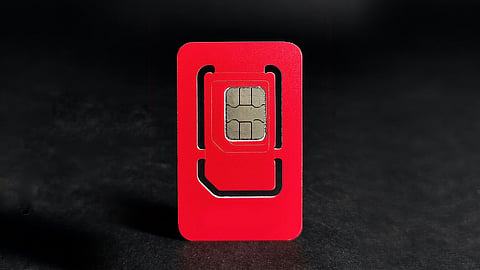
- NEWS
- the EDIT
- COMMENTARY
- BUSINESS
- LIFE
- SHOW
- ACTION
- GLOBAL GOALS
- SNAPS
- DYARYO TIRADA
- MORE

The National Telecommunications Commission is calling for the swift ratification of the bill requiring SIM card registration to prevent scams and smishing, which have been plaguing mobile phone users nationwide.
In an interview on Gising Na!, a multi-platform show of the Daily Tribune, NTC Deputy Commissioner Edgardo Cabarios admitted that tracing the origins of the senders of text scams is close to impossible.
Cabarios decried that the lack of SIM card regulation in the country prevents authorities from apprehending scammers violating the data privacy of people.
"Those messages are mostly from prepaid SIM numbers. It is very difficult to trace those who send scam messages because there is no registration. Our law enforcement agencies are trained in working but it's difficult because they have a blank hole to start with, so the sims must be registered so that messages can be traceable," he said Thursday.
The House Committee on Information and Communications Technology approved House Bill 14, the primary bill, filed and authored by House speaker Martin Romualdez, Ilocos 1st District Rep. Alexander Marcos, and Tingog Partylist Rep. Yedda Marie Romualdez and Jude Acidre.
If passed into law, the measure will require SIM card users to register their personal information with telecommunications bodies or authorized card sellers.
The Senate Service Committee has started a separate probe to address spam and scam messages on Thursday, 8 September.
According to Cabarios, people's private data could be retrieved by scammers from filled-out forms in malls, banks, and other similar establishments where they are required to disclose personal information.
"The question is where did the data leak of private information come from? That is currently being thoroughly investigated by the National Privacy Commission because under the Data Privacy Act 2012, it has the primary jurisdiction when it comes to personal information security," Cabarios said.
"If there are data breaches, they also prosecute and penalize people or company officials who are the source of the data breach," he added.
In a press statement on Wednesday, the National Privacy Commission affirmed that the recent wave of targeted smishing messages "appear to have been sent using specific mobile numbers registered to certain texting services."
It said smishing messages sent using mobile numbers are possible through a phone-to-phone or P2P transmission. It is usually coursed via telecommunication company's regular network and does not pass through data aggregators.
"Nonetheless, NPC has been continuously investigating potential sources and the root cause of targeted smishing messages such as patterns in the use of name formats that prospectively match the names of data subjects registered with popular payment applications, mobile wallets, and messaging applications," the NPC said.
